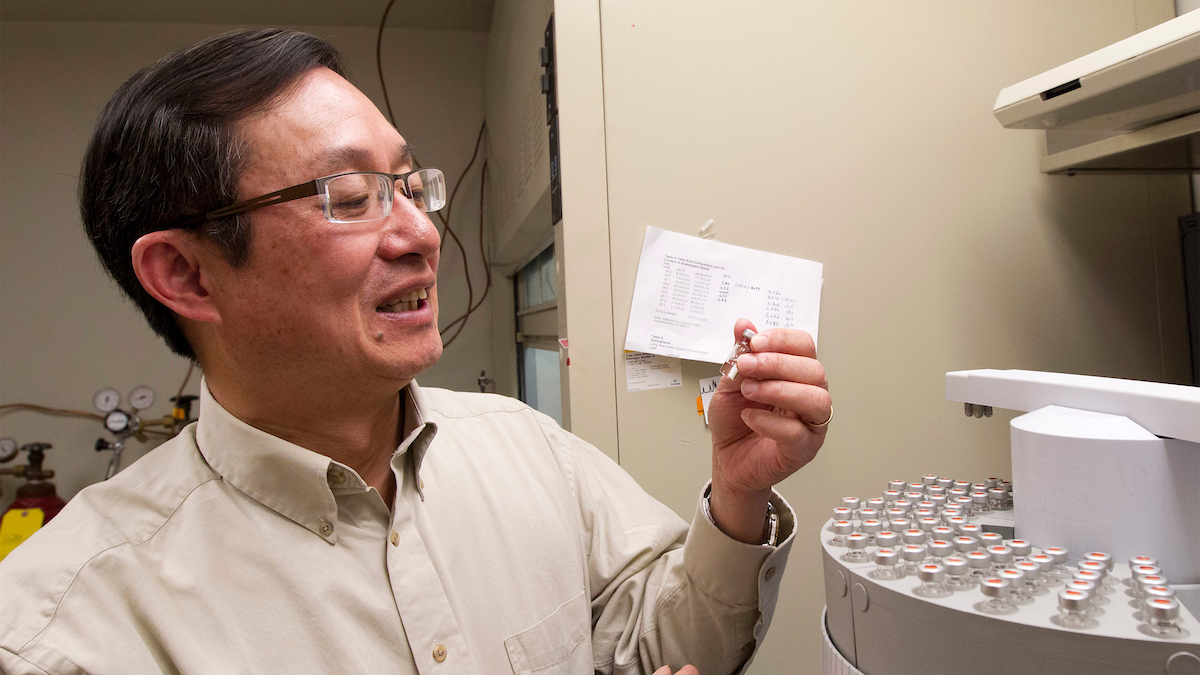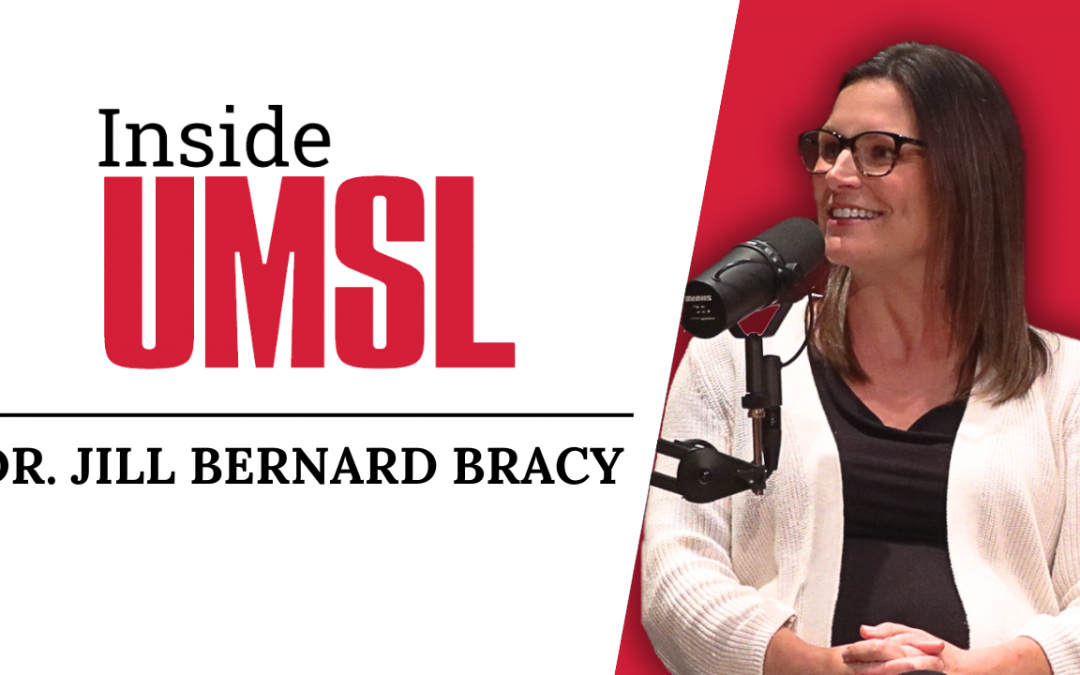
Sam Wang, the E. Desmond Lee Professor of Plant Sciences, is set to receive the George Engelmann Interdisciplinary Award from the Academy of Science of St. Louis at a banquet Thursday at the Missouri Botanical Garden. (Photo by August Jennewein)
Xuemin (Sam) Wang certainly hadn’t been expecting the news when his phone rang back in January on his drive to work.
He answered just the same and found a man on the other end of the call wishing to inform him that the Academy of Science of St. Louis had selected him as the 2018 recipient of the George Engelmann Interdisciplinary Award.
“It was a surprise,” said Wang, the E. Desmond Lee Professor of Plant Sciences in the Department of Biology at the University of Missouri–St. Louis. “I’m a very humbled, particularly knowing a little bit about who George Engelmann was.”
Engelmann emigrated from Germany to the United States in the 1830s, eventually settling in St. Louis and establishing a medical practice. But later in life, he also devoted himself to studying botany.
He helped found both the Academy of Science of St. Louis as well and the National Academy of Sciences, serving as president of the former, and is credited with encouraging St. Louis businessman Henry Shaw to develop his gardens – which developed into the Missouri Botanical Garden – for both scientific and public use.
“The award is for people who can really multitask and excel in multiple fields,” Wang said. “That’s what George Engelmann symbolized. I’m very honored.”
Wang is set to receive his prize alongside other honorees of the 24th annual Outstanding St. Louis Scientists Awards at a banquet Thursday at the Missouri Botanical Garden.
He attracted the recognition because of his work as a plant biochemist whose research centers on lipids – the fatty acids or their derivatives that are insoluble in water. They include many natural oils that hold great importance both as nutritional sources for humans and animals and in the development of renewable industrial feedstock and biofuels, including biodiesel.
Wang has held dual appointments at UMSL and as a principal investigator at the Donald Danforth Plant Science Center since coming to St. Louis in 2004. In his career, he has published more than 160 papers, edited two books and holds several U.S. patents.
“Dr. Wang has made seminal contributions to the field of plant lipid metabolism, signaling and analysis,” read the statement announcing Wang’s selection for the Engelmann award.
It went on to note his cloning of phospholipase D as a major breakthrough, leading to the identification of PLDs in yeast and animals and providing a catalyst for rapid advances in PLD research. It also said his analysis of PLD and other phospholipase families has advanced biochemical and functional understanding of membrane lipid hydrolysis.
It described him as a driving force in plant-lipid signaling and credited his vision and role in the development of lipidomic analysis that have broadly benefited the research community.
“We want to understand the lipid functions,” Wang said. “The particular area we’re looking at is lipid turnover. A lot of traditional study has been looking at how things are made, but knowing how things are broken down is as important as how things are made.”
His lab discoveries have the potential to be translated into improvements in crops for oil production, drought tolerance and the efficient use of nitrogen and phosphorous for plant growth.
Wang holds a bachelor’s degree from Huazhong Agricultural University in China and a master’s from The Ohio State University, but he really began developing his expertise in lipids while working toward his PhD at the University of Kentucky. He continued during postdoctoral research at Louisiana State University.
He joined the faculty at Kansas State University in 1991 and went on to serve as the director of the Kansas Lipidomic Research Center from 2002 through 2004 before moving to St. Louis.
The Engelmann Award is not the first honor he has received since he’s been at UMSL. He was chosen for the Chancellor’s Award for Excellence in Research and Creativity in 2014 and a Distinguished Alumni Award from the University of Kentucky’s Department of Plant and Soil Sciences in 2017.














